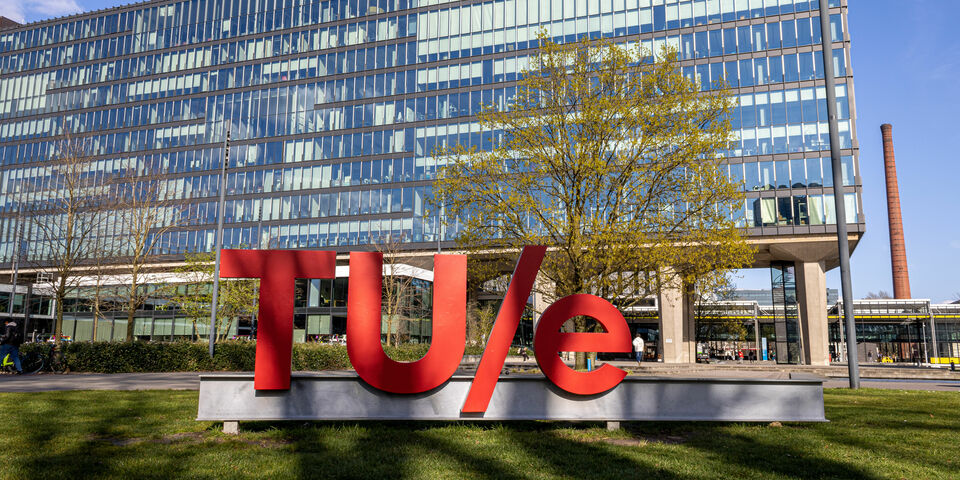Despite financial challenges, TU/e stays committed to growth
TU/e invested in education, research and infrastructure last year, among other things, despite a negative result of 25.9 million euros. That is according to the 2024 annual report published this week. It was also announced that the university will receive 90 million euros from the Beethoven Plan over the next few years and entered into an expanded partnership with chip machine manufacturer ASML.
Over half a billion euros was TU/e's turnover in 2024. The fiscal year ended with an operating deficit of 25.9 million euros, which is consistent with the budget. The main causes are inflation, rising wages and the increasing costs of the real estate portfolio, the annual report states. Simultaneously, the university invested 10.1 million euros from earmarked reserves in “strategic themes,” such as teaching, research and quality improvement of support services (SQUAD).
TU/e wrote that it is keeping a close eye on its financial position. “Despite growth, funding for core activities has not increased at the same rate and costs have increased due to inflation. To address these challenges, discussions were held in 2024 and TU/e will implement measures from 2025 to 2028 to achieve targeted savings and additional revenues.” This includes limiting the hiring of external staff and budget cuts in support services of 8 percent.
Steering ratio's
Despite the deficit, the university met all steering ratios in 2024, such as solvency (equity to debt ratio) and housing costs. On a multi-year basis, the university is projected to fall below the threshold value for one steering ratio (Solvency II), Finance & Control reveals upon inquiry. “This is because temporary additional investments are being made from the reserves. In the multi-year projection there are sufficient opportunities in it to make timely adjustments, depending on internal and external (market) developments.”
The current ratio (the proportion between current assets – such as cash and inventories – and short-term liabilities, like debts due within a year) hovers around the threshold value in the multi-year projection. “If investments result in insufficient cash flow, we will finance those investments through loans to ensure the ratio remains within the acceptable range,” according to Finance & Control.
Investments
Rising costs and lower funding from the government are requiring that priorities be set. For example, the real estate strategy and new clean room facilities demand structural investments and lead to a decrease in cash (or ‘liquid assets’ in accounting terms). For that reason, managing liquidity is essential, according to the Executive Board in the annual report.
The board is not concerned: “The balance of liquid assets is more than sufficient to meet short-term obligations. If, unexpectedly, advance payments were to be suspended, TU/e would still have ample options to secure external financing.”
Student numbers
TU/e grew to 13,453 students in 2024, slightly more than the previous year. Enrollment increased mainly in undergraduate programs. In response to national government budget cuts announced in May last year, TU/e revised its ‘autonomous’ growth strategy. The original goal was to expand to 15,000 students, but that target was adjusted to 13,000 after projections showed that further growth would no longer be financially sustainable.
The university is focusing on growth at the master’s level. A key priority is to improve the transition rate from bachelor's to master’s programs – specifically, increasing it to 60 percent for international students and 80 percent for Dutch students. In 2024, TU/e succeeded in reaching this target for Dutch students, although the numbers for international students still lag behind.
Beethoven and ASML
Last year, it was announced that TU/e will receive over 90 million euros in funding through Project Beethoven, a national government initiative to strengthen the Dutch semiconductor sector. This funding will enable the university to add 2,000 additional master’s students in high-tech domains—fields that are in high demand across the Brainport region. As a result, TU/e expects its total student population to grow to 15,000 beyond 2030.
Another major development in 2024 was the announcement of an expanded partnership with ASML. The chip equipment manufacturer is investing 80 million euros over the next ten years. In addition to building a new cleanroom on the TU/e campus, the partnership will support nearly 100 PhD candidates conducting research relevant to the chip industry.
Growth ambitions
To accommodate the growth ambitions, the university is expanding its infrastructure. In 2024, a new quantum technology building, Qubit, officially opened. Preparations are also underway for additional labs, teaching facilities, and the renovation of existing buildings. Plans for a new cleanroom and a multifunctional laboratory building are also in development.
However, TU/e’s growth ambitions are increasingly constrained by the tight labor market. While the number of academic staff – both permanent and temporary – grew by 3.6 percent compared to 2023, many positions remain difficult to fill. This has led to persistently high workloads and greater reliance on external hires, which drives up operational costs.


Discussion